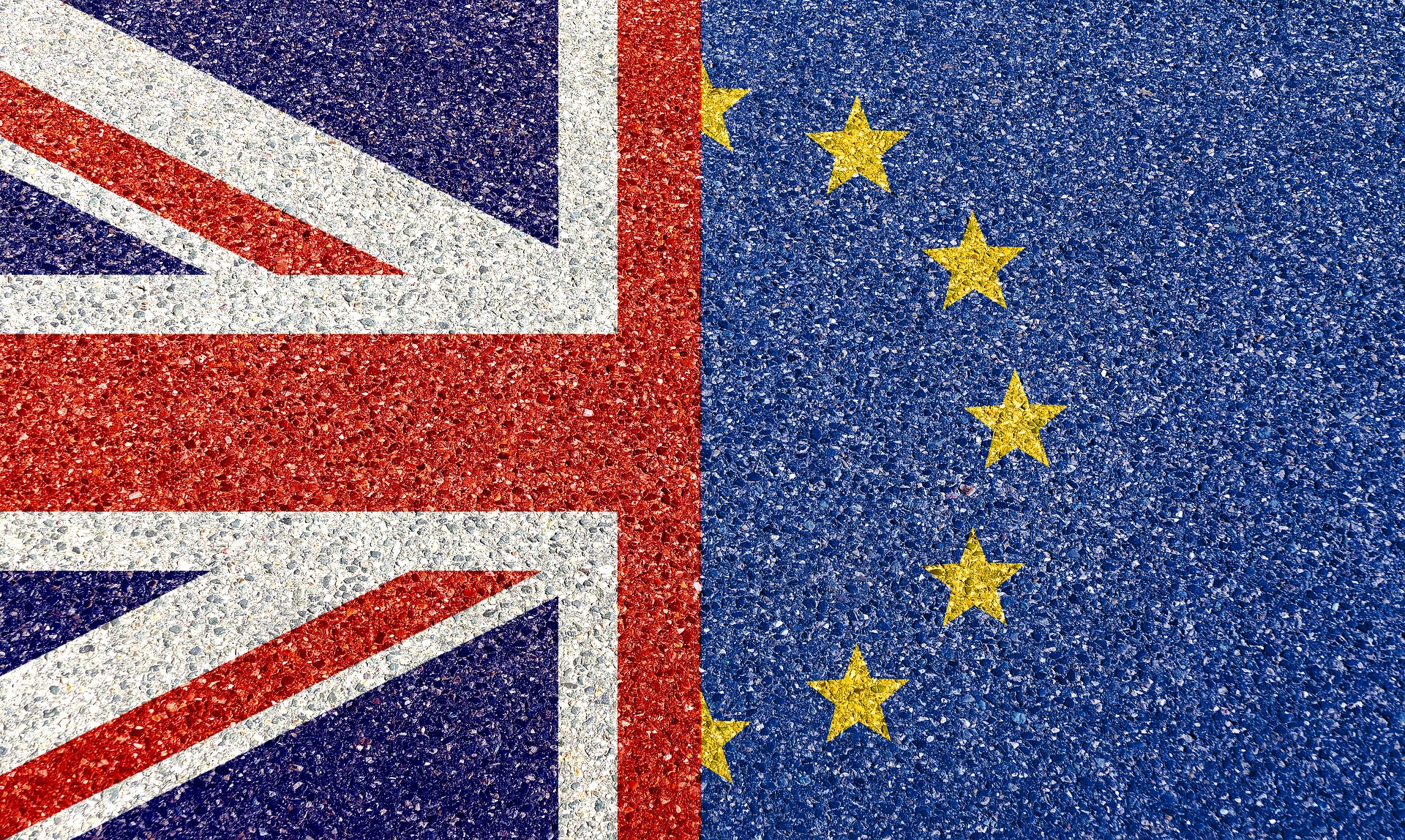[vc_row el_class=”inner-content”][vc_column][vc_column_text el_class=”pg-txt”][/vc_column_text][/vc_column][/vc_row][vc_row][vc_column][vc_column_text]Firms on both sides of the Channel are currently facing an unprecedented challenge: UK has withdrawn from the European Union after 48 years of membership. The EU-UK Trade and Cooperation Agreement is now governing the relationship between both parties and is provisionally applicable since 1 January 2021. This agreement does not include any global framework for financial services with the exception of agreeing to fully cooperating in preventing the use of their financial systems to launder the proceeds of all criminal activities (Title X). Consequently the provision of financial services is now subject to UK national laws for companies carrying out activities in the UK and national/EU laws for those which provide services within the EU.
- What is the Brexit impact on the financial industry?
The UK and the EU have decided for a different approach: two different regimes apply. The UK has elected to provide existing incoming EEA Firms with an extended timeline that will allow for a smooth transition (the temporary permissions regime or “TPR” and the temporary marketing permissions regime “TMPR”) whilst EU has decided to not grant any specific facility. It means that EEA incoming firms may continue the provision of financial/investment services in the UK under certain conditions if they have entered the TPR/TMPR whereas incoming UK firms need to be fully authorised (with few exceptions) to do so in the EU depending on the type of services they wish to provide.
- What happens now?
Since 1 January 2021, the UK has become a “third country” in relation to EU. All EU Directives and Regulations (e.g. CRD, PSD II, MiFID II/MiFIR and Solvency II) have ceased to apply. The incoming UK Firms and the incoming EEA Firms have lost their passporting rights and must have stopped servicing their clients and/or carrying activities in respectively the EU and the UK if they haven’t prepared as appropriate.
- Why was passporting important?
Passporting (Freedom of Establishment (FOE) or Freedom of Services (FOS)) is the process that allows EEA financial institutions to sell their products or provide their services across all EEA countries without the need to be authorised, set-up local subsidiaries or get a regulatory approval for each country they wish to provide services in. Since the UK has left the EU, it has become a “third country” for the purpose of EU regulatory frameworks and the passporting rights have ceased to be available for both the UK incoming Firms and the EEA incoming Firms.
- Does the Brexit have an impact on UK Firms operating only in the UK?
Whilst the UK has adopted the European Union (Withdrawal) Act 2018 to convert existing EU law at the point of exit into UK law, and consequently preserves existing laws which implement most EU obligations, Firms still need to consider how the new framework will impact their operations in the UK (e.g. reporting, change of their policies/procedures). Indeed the FCA/PRA have adopted numerous new instruments that may alter the way business was carried out previously provided that numerous obligations were directly stemming from EU Regulations and therefore formats, contents and even scope may have changed (e.g. MAR reporting). Even for purely UK Firms Doing nothing is not an option
Contact us to learn how we can assist you.
- What EEA Firms operating in the UK should do?
EEA Firms that have activities in the UK and that have registered with the FCA/PRA to benefit from the FCA TPR, the PRA TPR or the TMPR should have reviewed their existing processes to ensure that all new requirements in relation to reporting to, and information sharing with the Regulators have been implemented in accordance with the new rules adopted in 2020. They should also check the calendar applicable to ensure that they submit their request for authorisation on time including ensuring that their systems and controls will be updated on time for a positive result.
Contact us to learn how we can assist you.
- What is the “equivalence regime”?
Equivalence regime is not another word for passporting! The EU-UK Trade and Cooperation Agreement that took effect on 1 January 2021 does not include provisions for financial services as it was announced by Michel Barnier the European Chief Negotiator at the beginning of the negotiation process. Consequently financial services will have to operate under what is called the “equivalence regime” and/or the “Third Country regime” when available. Equivalence decisions are provided for in EU legislation. Please note that only around a quarter of financial services legislation provides for equivalence. This means that while some areas of investment banking and insurance could achieve equivalence, retail banking, payment services and reinsurance cannot.
- How does the “equivalence regime” operate?
The EU “equivalence regime” does not grant the same right as the passporting regime: it covers a narrow range of investment activities & services and does not apply to all client categories. The EU process to grant an “equivalent status” can last up to 5 years and once granted the equivalence may be withdrawn at virtually no notice. Equivalence decisions are based on an assessment of the results of regulatory regimes, rather than the similarities between different regulatory regimes and consequently operate as a patchwork, with equivalence a possibility in some areas, such as wholesale trading activity, but not in others, such as retail investment funds.
Please note that when “equivalence” is granted it does not mean that all requirements cease to apply and business can be carried-out as if the Firm was operating under the previous “passporting” regime: it may be sometimes necessary for individual companies to get additional approval from EU regulators. A full gap analysis shall be carried-out to ensure that the rights and obligations applying are fully understood and complied with.
Contact us if you need any assistance
- What is the “third countries” regime?
It is a regime only available for Firms providing investment services: MiFID II has introduced a harmonised regime granting access to non-EEA Firms to carry-out certain investment activities, or provide certain investment services within the EU. For retail and elective professional clients it has granted National Competent Authorities the discretion to require third country Firms to establish a branch within its territory – this is subject to a number of conditions applicable to both Firms as well as Third Countries. For other clients, i.e. professional clients and eligible counterparties, cross-border activity are possible without establishing a branch, provided that Firms register with ESMA and inform their clients that they are not subject to EU supervision – among other conditions, it also requires a positive European Commission equivalence decision. A draft Regulatory Standard has been published by ESMA on 28 October 2020.
Contact us if you want to learn more about the latest ESMA position.
- What client will I be able to serve without establishing operations in the EU?
As already stated, it will not be possible to provide services to clients under the Credit Institutions, Payment Services and Insurance Directives, only MiFID II provides for the possibility for third countries Firms to provide investment services with some limitations though (Chapter IV, Section 1 MiFID II and Title VIII MIFIR). Consequently, provided that no equivalence decision have yet been granted, Firms must verify country by country what permissions may be needed, if any, to continue doing business in the EEA making the provision of financial services extremely complex. Therefore it is highly recommended to analyse comprehensively its client base (e.g. location, profitability, service provided) to ensure that appropriate contingency plans are in place, clients have been properly notified and where relevant Firms have obtained or will obtain adequate permissions to keep on servicing those clients if they so wish.
- What is “Reverse Solicitation”?
All regulatory frameworks in the EU and the UK provide for the possibility that clients may contact directly at their own exclusive initiative a Firm to seek the provision of a financial service. In MiFID for instance the provision can be found in Article 42. Whilst it may seems that this facility is granting an exemption to carry-on providing services without being authorised either in the UK for incoming EEA Firms or in the EU for incoming UK Firms it is not the case. Indeed, as soon as an activity is carried out and/or a service is provided as a regular occupation or a business is performed on a professional basis this activity/service or business is subject to prior authorisation (e.g. MiFID II – Art. 5, Section 19 – FSMA 2000). ESMA has also provided some guidance on the subject matter in the QAs on MiFID and MiFIR investor protection and intermediaries’ topics (Section 13) and on 13 January 2021 issued a Statement to clarify its position.
- As a UK firm, will I be facing more regulatory burdens in the EEA countries?
Both UK & EEA countries have implemented very similar regulatory frameworks stemming from EU Directives & Regulations. Both the UK and the EU are mindful of investors’ protection rights and stability of financial markets: consequently the regulatory burden is quite similar even if some rules may differ on the outsets. Generally, EEA rules and UK rules diverge in subject matters linked to financial promotion & retail investor protection requirements: partial or total prohibition of certain products/services and additional information/reporting requirements. Please note also that the UK regulatory perimeter is slightly wider than most EEA countries ones.
Deontea having operations in several European countries can assist you in identifying applicable rules. Contact us for further insights.
- Will regulatory regimes remain equivalent despite the Brexit?
The UK has on-shored most of EU Regulations to ensure a smooth transition and therefore for the months to come the regulatory frameworks are expected to stay quite similar.
As for the future, there is no certainty. For instance in relation to prudential requirements applicable to investments firms, with the Brexit having been enacted, the UK is looking to introduce its own regime that may diverge from the EU one. Accordingly, the EU Regulation 2019/2088 – SFDR that comes into force in March 2021 in the EU has not been adopted by the UK that will finalise its own regime stemming from the recommendations issued by the Taskforce on Climate-Related Financial Disclosures (TCFD). This regime is expected to be similar however actual rules are unlikely to be identical.
- Is the process of applying for an authorisation in the EU very different from the one in the UK?
The process of applying for an authorisation in UK or in EEA countries is very comparable as it is based until now on ESMA guidelines. A Firm will have to prepare an application that includes among others an operational and regulatory business plan, provisional financials, map its governance structure and draft adequate policies/procedures suites. The complexity and length of the documentation will be proportionate to the Firm business model and planned operations.
Contact us to learn how we can assist you.
- Can I submit my application in English where applying for an authorisation in EU?
Most European National Competent Authorities will accept an application in English including AMF (France) and CSSF (Luxembourg).
- I have been told that UK UCITs funds will be considered as non EU-AIFs once Brexit is enacted?
In February 2018 the European Commission published seven Notices to stakeholders to clarify certain legal issues consequential to the UK withdrawal from the EU. One of those notices impacts directly asset managers and funds authorised under the UCITs Directive in EEA countries and in the UK. Both asset managers and funds will have to vary their current permissions if they wish to continue managing or be distributed on both side of the Channel. Please note that UK UCITs funds will not be considered as EU UCITs funds after the Brexit and will become non-EU AIFs under the EU regulatory framework (EC Asset Management notice). To retain UCITs denomination, the relevant funds will have to be incorporated and managed in the EU (some delegation of function including portfolio management will still be possible when granted the appropriate permission).
Contact us for further insight & see how we can assist you.
- Will becoming an Appointed Representative of a UK authorised firm allow me to keep servicing my clients in the UK whilst I was operating under the passporting regime before the Brexit?
Whilst it may seem that the shortest and the least burdensome route to keep on carrying-on regulated activities in the UK without being itself authorised may be to enter into an Appointed Representative Agreement with a UK authorised entity, it shall however be approached with caution. Indeed, numerous obligations apply among other the requirement to grant its principal unrestricted access to its premises and books which may for instance raise some serious confidentiality issues and personal data processing challenges. Also, the status of an Appointed Representative is a UK’s specificity and therefore a reciprocal arrangement will not be possible: the status of “agent” is however available but depending on the countries may be limited to certain activities/services.
- I am a Group with established operations in the EEA and in the UK, what happens to data sharing/transfer?
Whilst the UK has on-shored GDPR, now that the UK has left the EU Firms must consider how the rules apply. Indeed, GDPR includes several provisions that govern data flows within, from and to the EU. The transfer of certain data (personal data for the purpose of GDPR) outside the EU can only be done if “an equivalence” is granted and even then additional rules apply. The FCA confirms that the UK Government has stated that the UK will continue to allow the free flow of data from the UK to the EEA, hence the EU position has not yet been made clear and the UK position may still evolve. In the latest news, it was mentioned that numerous UK stakeholders would like GDPR to be reviewed to lighten the regulatory burden.
Contact us to ask any questions on Brexit related matters and/or seek our support in starting, pursuing or completing your Brexit related projects be it in the UK or in the EU. More information can be found on our page Brexit Solutions
[/vc_column_text][/vc_column][/vc_row]



